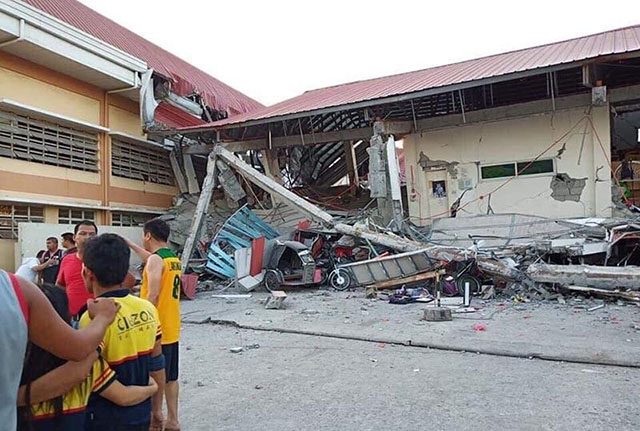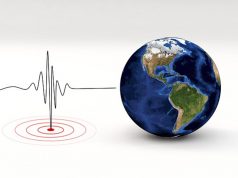
Reminders on how to take care of one’s mental well-being following an earthquake surfaced on social media after areas in Luzon were affected by intense tremors earlier this week.
Diwa Mental Health, a UP-system-wide research project that focuses on students’ mental health, shared self-care tips to ensure that one’s thoughts and feelings are accounted for after the incident.
“When the earth shakes, so do your feelings and thoughts. This is normal, just as the shakes are normal,” Diwa said.
It reminded people that they should take “deep breaths” to keep themselves calm during the incident.
It also urged them to surround themselves with lots of people for support and talk about the earthquake to relieve themselves of any anxiety or stress.
Should they wish to scour kinds of information about the incident, it must only be done through official news and government sources, Diwa said.
But one should also avoid “watching or listening to a lot of these” as reports about it tend to get repetitive, which may increase feelings of anxiety and panic.
Diwa also encouraged the public to get back to regular routine “as soon as it is safe to do so” since it offers a sense of stability.
“Go back to watching that movie, that TV show… Go back to your cooking, to your reading, to your school crush,” it said.
It added that one must not “fight” one’s thoughts and feelings about the incident — rather, they must be acknowledged since “they are all ok to have.”
Diwa also reminded the public to “do something positive that offers (them) a sense of control” such as helping a neighbor, or packing up an emergency backpack, among others.
Senatorial candidate Samira Gutoc also shared the same reminder on her Twitter account, urging her followers on the platform to take care of their mental health in the aftermath of a disaster.
Also – for mental health (found this also on internet) take care of your mental health and yourself during Disaster. This is helpful trust me. #BeenThere #FastDisasterResponse #MentalHealth pic.twitter.com/KPVR4UQ0R7
— .. (@SamiraGutoc) April 22, 2019
Gutoc previously expressed her concern on mental health conditions of displaced people in Marawi City after finding out that thousands of them are still in temporary shelters two years after the siege.
“Life in evacuation centers leads to depression. Hindi natin ginugusto na nasa temporary status tayo. Nasa international law ‘yan, the right to return [home] has to be guaranteed,” she said in a statement.
Mental impacts of disasters
A researcher from the University of Sydney wrote that post-traumatic stress disorder or PTSD may arise after a disaster, which has direct mental health consequences.
“This correlates with the severity of the consequences of the disaster (loss of family, friends, animals and property),”
Psychologists and psychiatrists believe that victims of life-threatening disasters would usually suffer from PTSD, an anxiety disorder caused by very stressful or frightening events.
People with PTSD may “relive the event through flashbacks or nightmares; they may feel sadness, fear or anger; and they may feel detached or estranged from other people,” the American Psychiatric Association noted.
“People with PTSD may avoid situations or people that remind them of the traumatic event, and they may have strong negative reactions to something as ordinary as a loud noise or an accidental touch,” it continued.
High rates of people with PTSD were witnessed in victims of a deadly magnitude 9.0 earthquake that struck northeastern Japan in 2011.
“Depression and child behavior problems were also reported frequently,” a global information services firm said in an article.
World Psychiatry also observed that victims of disasters would usually undergo a process of disbelief, bewilderment, have difficulties in focusing, denial, anxiety, fear and eventual depression and sadness.









